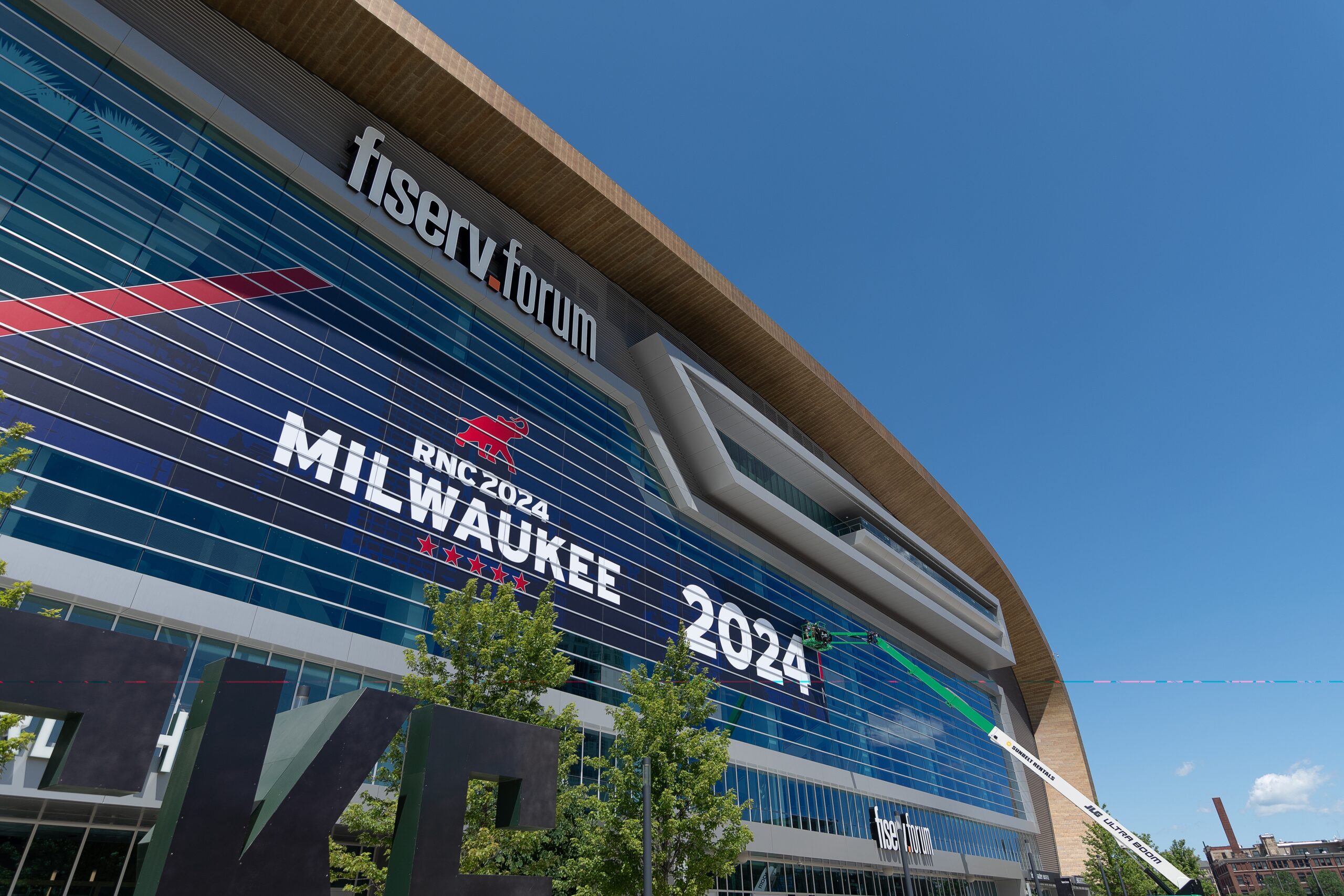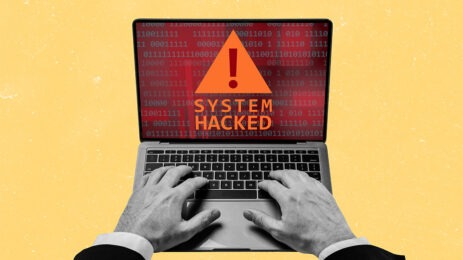The opening gavel for the Republican National Convention will resound in Milwaukee on July 15, and the Democrats will follow with their quadrennial gathering, in Chicago, on Aug. 19. Each national convention is predicted to draw some 50,000 visitors to those cities and regions. And each will be bookended by a flurry of events hosted by local leaders, lobbyists and others who hope to hold sway with the nation’s elected officials, convention delegates, political pundits and the media.
In short…meetings, meetings and more meetings. How does it all get planned? And by whom? Here are some pre-convention takeaways.
In Smart Meeting’s ongoing journey to inspire meeting professionals with the latest tips for elevating the event design process, we worked with the AI app InVideo to bring our content to visual life and allow all viewers to accessibly enjoy content in video form. We hope you enjoy. Please consider following our YouTube channel for more weekly tips and trends for meeting planners.
Takeaway #1: There Is No Single Meeting Planner
 “Political conventions are unique because they are not planned by an individual meeting planner, but instead through a Committee on Arrangements (COA),” explains Leslie Johnson, vice president of sales and event experience for Visit Milwaukee.
“Political conventions are unique because they are not planned by an individual meeting planner, but instead through a Committee on Arrangements (COA),” explains Leslie Johnson, vice president of sales and event experience for Visit Milwaukee.
Her destination marketing organization (DMO), she says, “serves as a conduit for placing the COA in touch with business leaders and government officials in the selection of venues and meeting spaces based upon scope of a political convention’s needs.”
Takeaway #2: The Local DMO Knows Its Turf Best
Johnson emphasizes that for conventions like these, the local DMO or CVB (convention and visitors bureau) is an essential partner for making them as successful as possible. No out-of-town meeting prof can match the local connections and know-how.
Learn More: Political Conventions Led to $360 Million for Philadelphia and Cleveland
Takeaway #3: Security Will Be a Headache You Never Want

Most planners will never face security issues like these—and they’ve only gotten worse since the attempted assassination of former President Trump the weekend before the GOP convention began. The security plan for both conventions was developed by representatives from federal, state and local agencies. Subcommittees focused on distinct aspects of security like traffic management, maritime security and business and community impact.
U.S. Secret Service Director Kimberly Cheatle met in Milwaukee and Chicago with representatives from the local FBI office, the police and fire departments and “other experts,” according to a Secret Service online press release. Director Cheatle also got security briefings and toured sites being used during the convention—in Milwaukee at Fiserv Forum, newly expanded Baird Center and Panther Arena; and in Chicago at United Center Arena on the Near West Side, home to NBA’s Chicago Bulls and NHL’s Chicago Blackhawks.
Security perimeters will be set up around convention sites “of sufficient size to mitigate a variety of threats. The perimeter typically includes law enforcement officers, physical barriers, and checkpoints,” according to a city of Milwaukee website. Only credentialed convention delegates, media and volunteers will be allowed entry to the convention.
Flight restrictions will be imposed in the Milwaukee area leading up to, and during, the convention, including for drones. No commercial or recreational boats will be allowed on the Milwaukee River near the convention, and protesters are restricted to two designated zones outside the “hard security zone.”
What about guns? Prominent Republicans — including Trump himself—have publicly opposed gun-free zones, yet civilians will not be permitted to carry firearms near the convention area, according to news reports. Open and concealed firearms will be permitted only a few blocks away, however, as permitted by Wisconsin law.
“Understandably, the presence of firearms around any kind of major event is going to make some people feel uncomfortable,” Nick DeSiato, chief of staff in the Milwaukee mayor’s office, told Axios.
Similarly tight security will surround the Democrats, whose last Chicago convention, in 1968, was described as a “police riot,” after Chicago police swinging billy clubs descended on anti-Vietnam War protesters.
Takeaway #4: How to Piggyback on Vetted Vendors
The local clearinghouse for many things convention-related in both Milwaukee and Chicago is what’s known as the host committee, which is made up of community leaders. Their goal is to showcase their cities to reap the most from worldwide publicity the conventions will bring.
In Milwaukee, for example, the MKE 2024 Host Committee was charged with raising $68 million to mount the event itself, and to contract with the major venues and set up a transportation system to shuttle delegates and others to and from the convention. The committee issued a statement saying it is “working around the clock to ensure a successful event—and making sure the people of Milwaukee and our great state share in that success.”
Read More: 5 Tips for Positive and Profitable Planner-Vendor Relations
Among these efforts was creation of a Vendor Connection and Vendor Directory. The former is a portal through which local businesses—everything from AV vendors to printers, florists and even event planners—could apply to provide services and products at the convention itself. “We reference it when sending out information about RFPs and use it to communicate directly with vendors about upcoming opportunities.”
These businesses could also agree to be added to the public-facing directory, which is intended as a reference for visitors to use when planning events and trips related to the convention.
But the directory’s shelf life is meant to be longer than that. “Our main goal is for the convention impact to stretch well beyond 2024,” states a MKE 2024 Host Committee web post. “We aim to build a list of partners who can be a resource to Milwaukee after the Republican National Convention ends…This list will serve as a tool for anyone looking to experience the best in hospitality that Milwaukee can offer.”
The Chicago 2024 Host Committee is following roughly the same game plan. It launched a Vendor Directory and a Venue Map, described as “a one-stop shop.” In the Chicago Sun Times, City Alderman Gilbert Villegas wrote, “Thanks to this resource, the delegates, elected officials, volunteers and journalists converging at the convention will have thousands of local vendors at their fingertips to experience Chicago’s best hospitality.”
He also noted that a Business Diversity Advisory Council had been formed “to spread the wealth as venues are booked, contracts are signed, orders are placed and stages are built… By turning this council’s insight into action, the convention team is one step closer to achieving our shared vision of maximizing diverse business participation in this summer’s events.
“Too often, large-scale events touch down in our city like a tornado sweeping up all the economic benefits with them on their way out. There is untapped talent our city has to offer, and it is critical to push for more permanent resources like the ones being built for the convention.”
After the convention, the Vendor Directory will be shared with Chicago’s local chambers of commerce, entities like Choose Chicago and Enjoy Illinois and other large-scale event planners, according to published reports.
Takeaway #5: Send Off Your Attendees with Uplifted Hearts
“Pick a closer, pick a speaker who can inspire and end your event in a way that leaves your attendees hopeful and excited for the future,” is the takeaway offered by Smart Meetings’ Eming Piansay, who attended the 2008 Democratic National Convention in Denver as a journalist. “Barack Obama gave an amazing speech that night.”
Hopefully, similarly uplifting moments will come out of this year’s national conventions.




